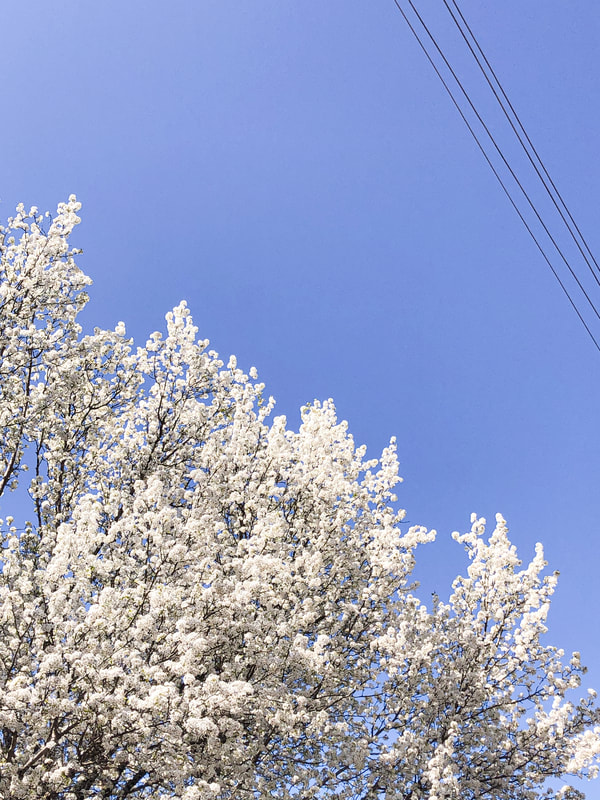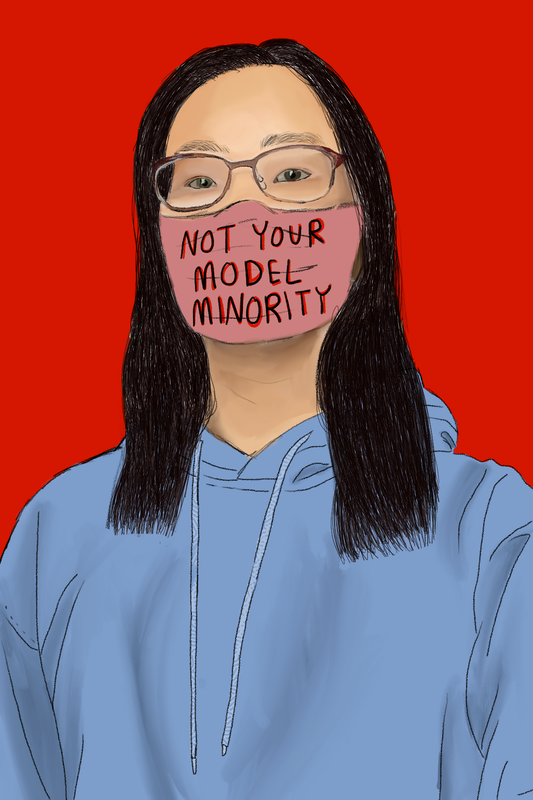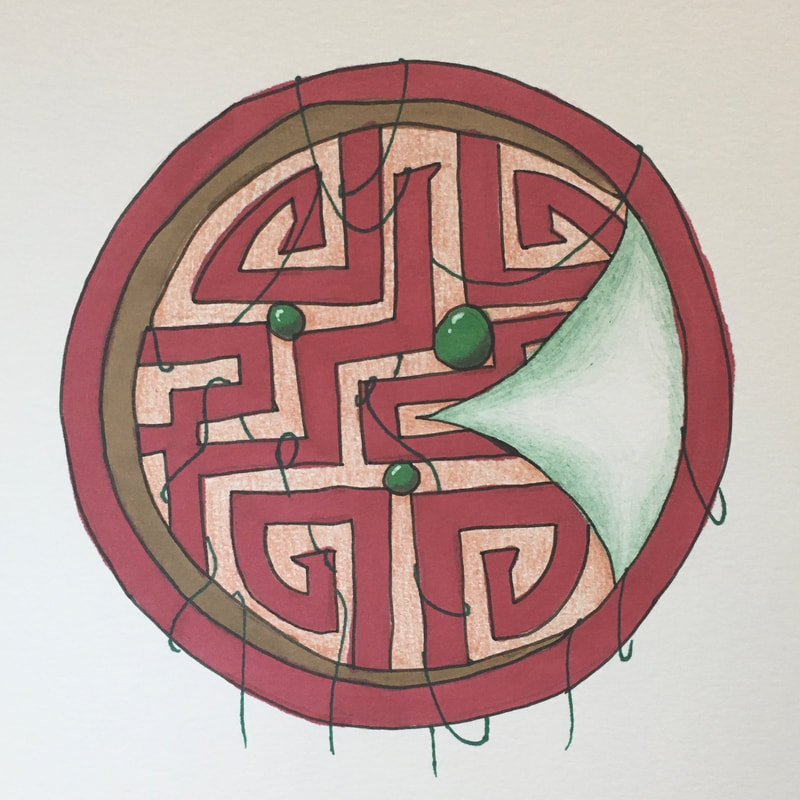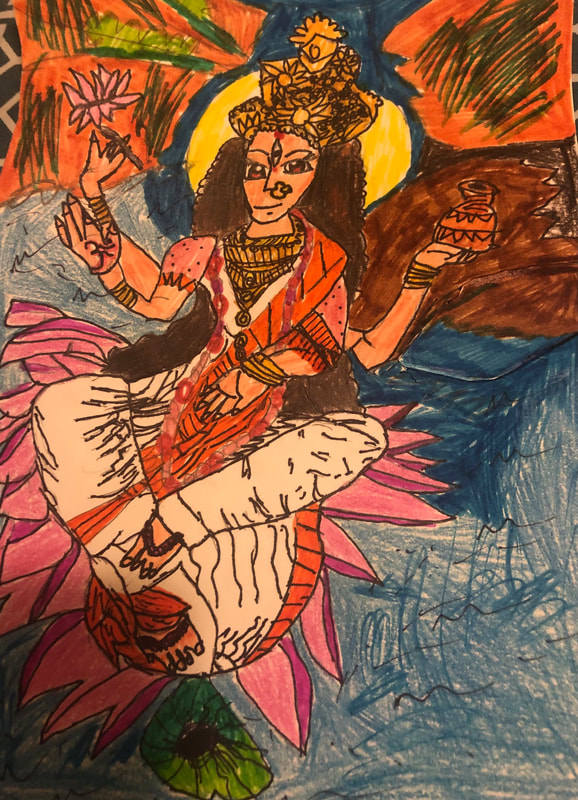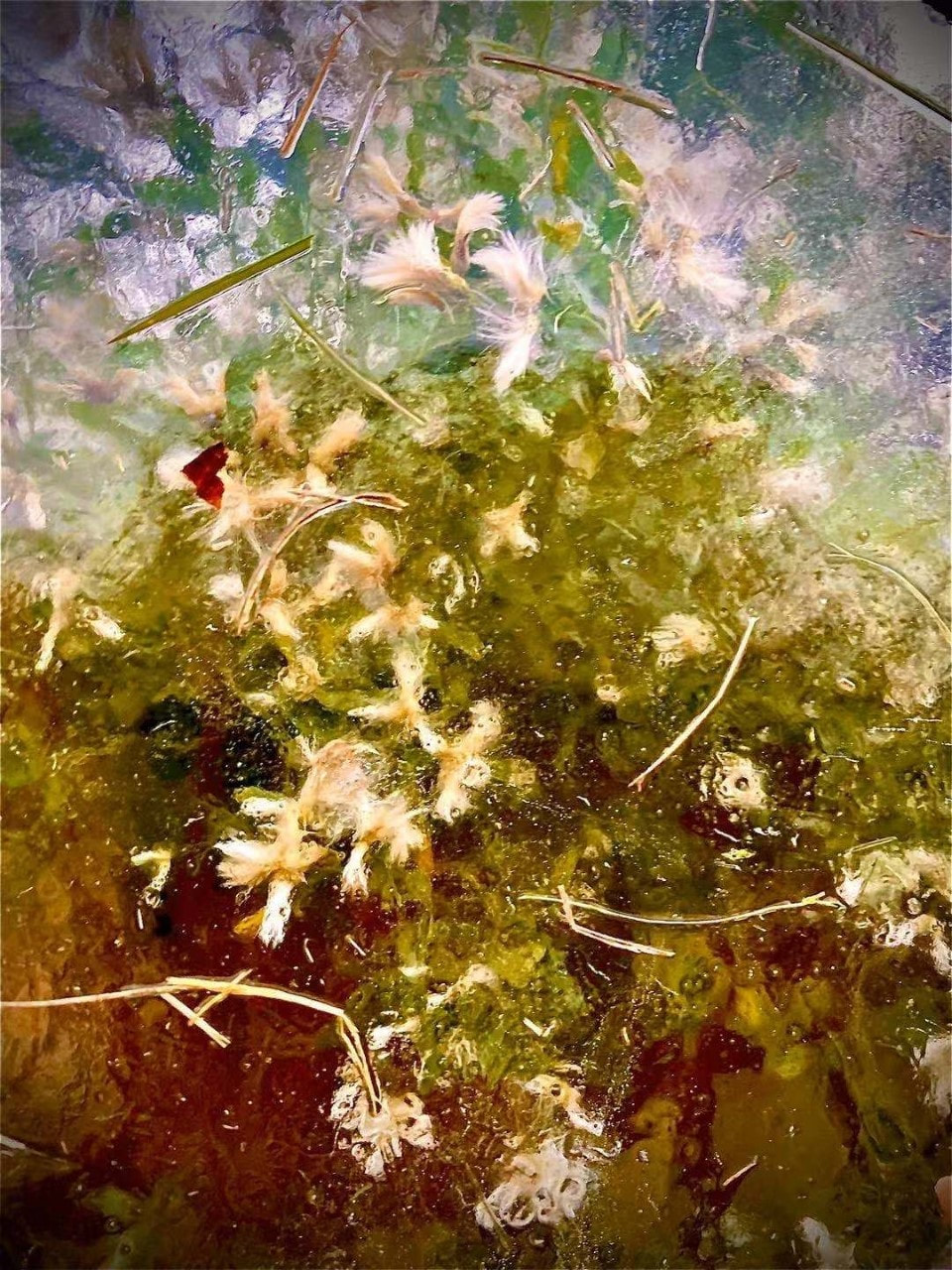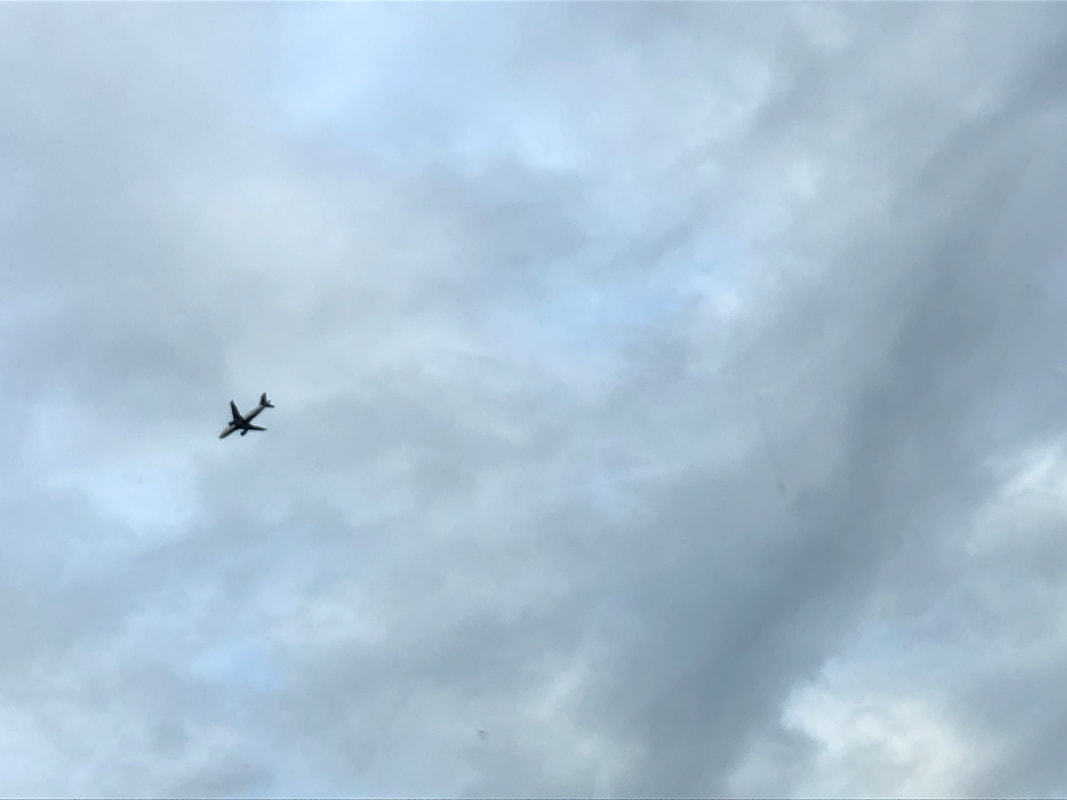GLHS Literary Magazine Edition IV
misconceptions
By Abby Lu
|
it’s not A+’s or nothing
it’s the value of true education it’s not slippers flying it’s tough love and personal discipline it’s not stinky food it’s traditional cuisine passed through history it’s not aggressive families and cold hearts it’s laughing around the dinner table, sharing stories over food it’s not ugly, tiny eyes it’s eyes as beautiful as anyone else’s it’s not ching chong it’s a language that flows off the tongue it’s not yellow skin it’s a stunning in between, balanced shade it’s not submission it’s strength it’s not exotic, weird, foreign people it’s a diverse race of human beings it’s not disgusting or harmful it’s a beautiful culture it’s not what you mock it’s something to respect. |
signs of spring
Nethali Padmaperuma |
|
Wish From Abroad,
Adam Kashmola |
Hate is a VirusBy Sushrit Pasumarthy
COVID-19 CAUSED MANY THINGS TO COME TO A HALT. ASIAN-AMERICAN DISCRIMINATION WAS SOMETHING THAT DIDN'T. In America, March 2020 started out as a regular month. While there was growing news of Americans being infected with COVID-19, for the most part life went on as usual. Then, like a child toppling a chain of dominoes, COVID-19 took out facets of American life one-by-one, from prevalent entertainment institutions such as the NBA to thousands of schools nationwide being postponed/closing indefinitely due to it. Millions of Americans were negatively affected by COVID-19, including those who lost their jobs, those who lost loved ones, or those who ended up contracting the virus themselves. Now, a year later from when the virus initially hit America, COVID-19 vaccines are rolling out to hopefully bring an end to the pandemic. As the pandemic comes to a close, many Americans will be anxious to forget the grief and loss they had to endure during the pandemic and move on with their lives. However, this is something that will not be possible for Asian-Americans, who were largely associated with the COVID-19 virus by Americans and faced an increased amount of discrimination towards them as a result. |
ASIAN-AMERICAN DISCRIMINATION HAS BEEN AROUND FOR MORE THAN 200 YEARS IN AMERICA.
Make no mistake, Asian-American discrimination in America is not something new caused by COVID-19 - it's actually been present in American society for the past 200 years. Back in the 1850s, Asians started migrating in large numbers into America (immigrationtotheunitedstates.org). While they came as a result of the Gold Rush of 1849, many Asian immigrants ended up also helping the American workforce in other industries, one notably being the railroad industry, where thousands of Asian immigrants worked on the construction of the Transcontinental Railroad (immigrationtotheunitedstates.org). With this economic success, one may expect that the Asian-American populace would be considered by the general American population to be model minorities. This is far from the truth, as the Asian-American populace were instead considered a threat to the United States, a nation that promoted a whites-only immigration policy at that time (immigrationtotheunitedstates.org). To this extent, white nativists in places like San Francisco ruthlessly spread xenophobic propaganda about Asian immigrants in San Francisco (de Leon). All of this discrimination targeted towards the growing wave of Asian immigrants into America culminated in the passage of the infamous Chinese Exclusion Act of 1882, which prohibited most Chinese folk from immigrating into America (History.com staff). While these regulations became more lax as the decades went on, the Act was never fully repealed until the passage of the Immigration and Nationality Act of 1952 (Office of the Historian). In addition, in response to the bombing of Pearl Harbor by the Japanese Navy on December 1941, President Roosevelt passed Executive Order 9066, which incarcerated people under suspicion as enemies to inland internment camps (de Leon). The vast majority of these incarcerated people were Japanese Americans, many of which were innocent and locked up without evidence or trial (de Leon). The Chinese Exclusion Act and Executive Order 9066 are shameful reminders of the immense, government-backed discrimination that the ancestors of many of the current Asian-American populace had the face, and as a result of them, attitudes towards the Asian-American populace were tarnished for the years to come. And in a tragic turn of events, the COVID-19 pandemic exacerbated this discrimination the Asian-American has had to deal with.
AS COVID-19 RAPIDLY SPREAD ACROSS THE COUNTRY, AMERICANS ASSOCIATED THE ASIAN-AMERICAN POPULACE WITH THE VIRUS.
On March 26th, 2020, just 2 months after the first confirmed COVID-19 case in America, the United States became the leader in the world for confirmed COVID-19 cases (NY Times). With the unprecedented rapidity in which the cases grew, Americans were left shocked as their world and daily lives crumbled before them. Some Americans took out their frustrations on the Asian-American populace by associating them with the virus. According to a July 2020 survey done by the Pew Research Center, 40% of Americans have stated that it was more common for people to express racist views about Asians after the COVID-19 pandemic than before it (Ruiz et. al). Out of the Asian-American respondents to the poll, 31% report that they have been the subject of slurs and jokes and 39% report that people have acted as if they were uncomfortable around them (Ruiz et. al). This increased discrimination was fueled by statements from the Trump administration, who regularly used discriminatory rhetoric such as "the kung flu" and "the Chinese virus" when describing the COVID-19 pandemic (Papenfuss). By using rhetoric such as this, some members of the American public were emboldened to continue on their dogged attacks and discrimination towards the Asian-American populace.
Unfortunately, the discrimination did not only manifest itself in verbal abuse towards Asian-Americans. In analysis done by the Center for the Study of Hate and Extremism at California State University, San Bernardino, data showed that while hate crimes in general decreased by 7 percent in 2020, hate crimes targeted towards the Asian-American populace rose by a staggering 150 percent in 2020 (Yam). As shown on the graph to the right, hate crimes towards Asian-Americans between 2019-2020 increased in 14 of the 16 most populous American cities. These hate crimes largely include horrendous acts of violence done to innocent Asian-American people (BBC News).
THE ASIAN-AMERICAN COMMUNITY IS FIGHTING BACK AGAINST THE DISCRIMINATION
On March 16th, a gunmen went on a violent killing spree in an area near Asian-owned massage parlors in Atlanta, eventually killing 8 people, 6 of which were Asian-American (Fausset et. al). This act of violence incited an uproar across the United States, especially members of the Asian American community. Asian-Americans across the country, from respected leaders to common people, began to virtually share their own stories of the discrimination they experienced as a result of COVID-19, causing anti-Asian hashtags such as #IAmNotAVirus and #HateIsAVirus to skyrocket in usage (CNN).
About a year ago, various Asian-American support groups came together to form the STOP AAPI Hate Reporting Center, which aims to track and respond to incidents of hate, violence, harassment, discrimination, shunning, and child bullying against Asian Americans and Pacific Islanders in the United States (stopaapihate.org). This group employs thousands of volunteers across the country to assist and protect the Asian-American populace from discriminatory attacks and hate crimes by doing things like assisting elderly on walks to keep them safe from ill-intentioned strangers (stopaapihate.org). In a time where anti-Asian discrimination is at dangerous levels, groups such as STOP AAPI Hate Reporting Center greatly help to quell and bring to public view the discrimination.
While the fighting back against the discrimination will greatly help decrease the racial tensions that the current generation of Asian-Americans growing up in America experience, their generational sense of identity will be permanently impacted by the hatred Asian-Americans have experienced during the coronavirus. They will inevitably have to deal with people who think that their ethnicity is a virus and work through people who believe that they are menaces to society. However, by going through these experiences, they will become stronger and more independent. Because as Jeremy Lin once said, "Something is changing in this generation of Asian Americans. We [Asian-Americans] are tired of being told we don't experience racism, we are tired of being told to keep our heads down and don't make more trouble".
View citations and complete article with additional resources here: https://sites.google.com/students.wcpss.net/chinesevirusessay/home
Make no mistake, Asian-American discrimination in America is not something new caused by COVID-19 - it's actually been present in American society for the past 200 years. Back in the 1850s, Asians started migrating in large numbers into America (immigrationtotheunitedstates.org). While they came as a result of the Gold Rush of 1849, many Asian immigrants ended up also helping the American workforce in other industries, one notably being the railroad industry, where thousands of Asian immigrants worked on the construction of the Transcontinental Railroad (immigrationtotheunitedstates.org). With this economic success, one may expect that the Asian-American populace would be considered by the general American population to be model minorities. This is far from the truth, as the Asian-American populace were instead considered a threat to the United States, a nation that promoted a whites-only immigration policy at that time (immigrationtotheunitedstates.org). To this extent, white nativists in places like San Francisco ruthlessly spread xenophobic propaganda about Asian immigrants in San Francisco (de Leon). All of this discrimination targeted towards the growing wave of Asian immigrants into America culminated in the passage of the infamous Chinese Exclusion Act of 1882, which prohibited most Chinese folk from immigrating into America (History.com staff). While these regulations became more lax as the decades went on, the Act was never fully repealed until the passage of the Immigration and Nationality Act of 1952 (Office of the Historian). In addition, in response to the bombing of Pearl Harbor by the Japanese Navy on December 1941, President Roosevelt passed Executive Order 9066, which incarcerated people under suspicion as enemies to inland internment camps (de Leon). The vast majority of these incarcerated people were Japanese Americans, many of which were innocent and locked up without evidence or trial (de Leon). The Chinese Exclusion Act and Executive Order 9066 are shameful reminders of the immense, government-backed discrimination that the ancestors of many of the current Asian-American populace had the face, and as a result of them, attitudes towards the Asian-American populace were tarnished for the years to come. And in a tragic turn of events, the COVID-19 pandemic exacerbated this discrimination the Asian-American has had to deal with.
AS COVID-19 RAPIDLY SPREAD ACROSS THE COUNTRY, AMERICANS ASSOCIATED THE ASIAN-AMERICAN POPULACE WITH THE VIRUS.
On March 26th, 2020, just 2 months after the first confirmed COVID-19 case in America, the United States became the leader in the world for confirmed COVID-19 cases (NY Times). With the unprecedented rapidity in which the cases grew, Americans were left shocked as their world and daily lives crumbled before them. Some Americans took out their frustrations on the Asian-American populace by associating them with the virus. According to a July 2020 survey done by the Pew Research Center, 40% of Americans have stated that it was more common for people to express racist views about Asians after the COVID-19 pandemic than before it (Ruiz et. al). Out of the Asian-American respondents to the poll, 31% report that they have been the subject of slurs and jokes and 39% report that people have acted as if they were uncomfortable around them (Ruiz et. al). This increased discrimination was fueled by statements from the Trump administration, who regularly used discriminatory rhetoric such as "the kung flu" and "the Chinese virus" when describing the COVID-19 pandemic (Papenfuss). By using rhetoric such as this, some members of the American public were emboldened to continue on their dogged attacks and discrimination towards the Asian-American populace.
Unfortunately, the discrimination did not only manifest itself in verbal abuse towards Asian-Americans. In analysis done by the Center for the Study of Hate and Extremism at California State University, San Bernardino, data showed that while hate crimes in general decreased by 7 percent in 2020, hate crimes targeted towards the Asian-American populace rose by a staggering 150 percent in 2020 (Yam). As shown on the graph to the right, hate crimes towards Asian-Americans between 2019-2020 increased in 14 of the 16 most populous American cities. These hate crimes largely include horrendous acts of violence done to innocent Asian-American people (BBC News).
THE ASIAN-AMERICAN COMMUNITY IS FIGHTING BACK AGAINST THE DISCRIMINATION
On March 16th, a gunmen went on a violent killing spree in an area near Asian-owned massage parlors in Atlanta, eventually killing 8 people, 6 of which were Asian-American (Fausset et. al). This act of violence incited an uproar across the United States, especially members of the Asian American community. Asian-Americans across the country, from respected leaders to common people, began to virtually share their own stories of the discrimination they experienced as a result of COVID-19, causing anti-Asian hashtags such as #IAmNotAVirus and #HateIsAVirus to skyrocket in usage (CNN).
About a year ago, various Asian-American support groups came together to form the STOP AAPI Hate Reporting Center, which aims to track and respond to incidents of hate, violence, harassment, discrimination, shunning, and child bullying against Asian Americans and Pacific Islanders in the United States (stopaapihate.org). This group employs thousands of volunteers across the country to assist and protect the Asian-American populace from discriminatory attacks and hate crimes by doing things like assisting elderly on walks to keep them safe from ill-intentioned strangers (stopaapihate.org). In a time where anti-Asian discrimination is at dangerous levels, groups such as STOP AAPI Hate Reporting Center greatly help to quell and bring to public view the discrimination.
While the fighting back against the discrimination will greatly help decrease the racial tensions that the current generation of Asian-Americans growing up in America experience, their generational sense of identity will be permanently impacted by the hatred Asian-Americans have experienced during the coronavirus. They will inevitably have to deal with people who think that their ethnicity is a virus and work through people who believe that they are menaces to society. However, by going through these experiences, they will become stronger and more independent. Because as Jeremy Lin once said, "Something is changing in this generation of Asian Americans. We [Asian-Americans] are tired of being told we don't experience racism, we are tired of being told to keep our heads down and don't make more trouble".
View citations and complete article with additional resources here: https://sites.google.com/students.wcpss.net/chinesevirusessay/home
Celebrating the Lunar New Year in a Pandemic
By Aida Guo
|
Brenne Sun
|
Every year I watch my mother roll homemade dumpling skins with ease on our flour-covered cutting board. Background sounds of the annual 春节晚会 (Spring Festival Gala) play on our TV as I nibble on 冬瓜糖 (winter melon candy), dried coconut, and prawn crackers. My 姥姥,小姨,and 小衣服 call in from across the world in their cozy apartment on WeChat, and my cousin calls from a few cities away in NC, as we pass, “新年快乐,身体健康,恭喜发财,”s happily passed around. We fold the dumplings, one-by-one and tray-by-tray, as the day passes on, adding hidden surprises in select dumplings for lucky eaters. A candy for good luck, a walnut for good health, rice cakes for a promotion, a M&M (as a replacement for a coin) for wealth. They get boiled and served with black vinegar, along with 蒸鱼 (steamed fish), spring rolls, and a variety of other mouth-watering dishes. Most years, we get to attend Chinese parties and potlucks. I get to eat my best friend’s mom’s 凉粉 and her dad’s 年糕, placed amongst the treasure-covered kitchen island table with kids and parents lined up with their paper plates. The kids play rounds of spoons (and in the past few years, innocent rounds of Cards Against Humanity), stomachs full from seconds, thirds, and dessert, listening to the laughter and chatter of parents. Last year, the fear of Covid-19 kept everyone from gathering, having already hit our second homes. Instead of a house-filled with ten families, it was a table filled with ten people. But still, we managed to reminisce of a pre-Covid world, giggle to horrible pictionary drawings, and fill our bellies with good fortune. But this year, like every other, we will call through WeChat, to wish for a happier and healthier year, and count our lucky dumplings. Because even though I miss the potlucks we didn’t get in 2019, the one-dollar coins in red envelopes from Chinese school, the fifty pairs of shoes left by the door. Even though this year, we’re filled with grief and anxiety from loss and loneliness: we can still hope. |
|
每年,我会看着我妈妈在面粉覆盖的切菜板上轻松的擀饺子皮儿。我慢慢地吃着冬瓜糖,椰子糖,虾片,听着电视上的春节晚会。我的姥姥,小姨,和小姨夫在中国跟我,我的妈妈,还有我的表哥在微信视频。我们开心的互相拜年说,“新年快乐,身体健康,恭喜发财” 。
我们一起包幸运饺子,从一个一个包到一盘一盘,就像流逝的日子,在饺子里包上糖,坚果,年糕,M&M豆 (代替真钱)。在桌子上,我们摆上煮好的饺子,黑醋,蒸鱼,春卷,和各种各样令人垂涎的菜肴。 大多数过年,我们都去朋友家聚会。我可以吃我最好的朋友的妈妈做的凉粉,他爸爸的年糕。每次聚会主人总是准备一桌子的吃的,鸡鸭鱼肉,南方菜北方菜,桌子上摆满幸福。小孩子和大人一起排队拿吃的。酒足饭饱后,孩子们一起打牌游戏,听着家长哈哈的说笑。 去年春节,担心新冠肺炎大家没有一起庆祝,那时候新冠已经在武汉蔓延。大家不敢像以前一样十几家一起聚会,只是比较亲近的两三家人一起聚餐。但是,我们能够想像疫情之前的春节聚会,好多人一起乐乐呵呵的玩儿着游戏,被各种美食填满的肚子。 今年像每一年,我们在微信上视频,祝福彼此新的一年更幸福,更健康的!在餐桌上数着我们吃到的幸运饺子。我很是想念从前的和很多人一起吃的春节宴,想以前可以从中文学校拿到春节的红包,想看到朋友家聚会的人们留在门外的五十双鞋。虽然今年, 我们充满了失落和孤独 ,悲伤和焦虑:我们还有很多希望。 |
Across the Sky,
Anjali Tummala |

